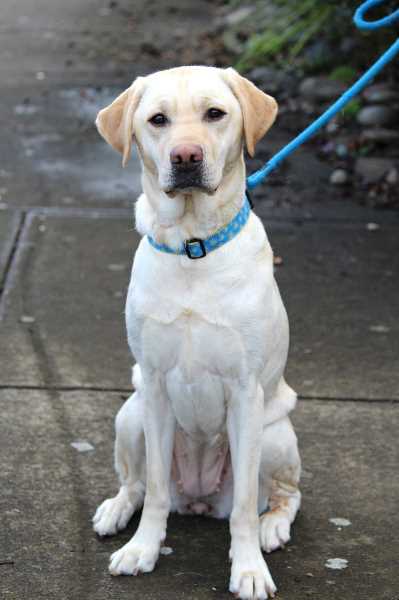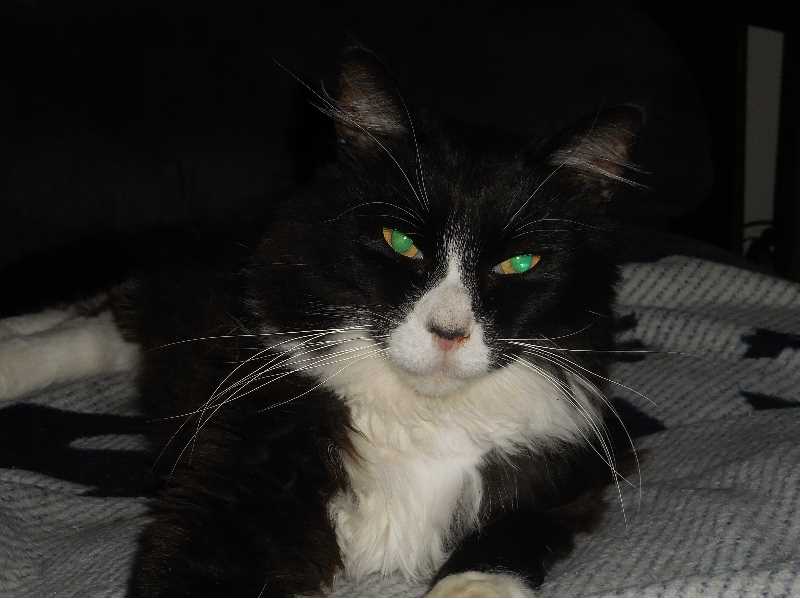PORTLAND, Ore. (PORTLAND TRIBUNE) — Oregon pet owners agree: pets are best for making you laugh.
A survey from Oregon Values and Beliefs Center found that 75% of Oregonians say their pets often make them laugh. Only 2% said their pet never makes them laugh.
Roughly two-thirds of Oregonians said their pets often reduce their stress levels or feelings of loneliness.
One in three Oregonians have adopted a pet in the past two years, roughly since the start of the pandemic, the survey found.
Nearly all Oregonians consider their pets part of their family (93%). And, as family members, most pets get to sleep in their owners’ beds (71%).
Andrea Cox, a Washington County resident, has “small, fat, toothless dog” named Luna who is a consistent source of laughter. “She is the sweetest dog on the planet. She just was one of the unlucky ones that settled with families that weren’t able to take care of her,” Cox said, leading to the dental issues that required having her teeth removed.
Cox also has an unofficial “therapy cat,” KitTan, 9.

“She is my absolute baby. She’s also gigantic,” Cox said.
Susan Heath, a Linn County resident, raised a puppy for Canine Companions, a nonprofit that trains service animals for people with disabilities. But only a few months after Gidget, the puppy, got the vaccinations that make it safe to interact with other dogs and humans, the pandemic hit.
Gidget wasn’t able to get the socialization that puppies in service dog-training need, Heath said. A few months after starting the next stage of training, which is done with professional service dog-trainers, Gidget was released and offered back up to Heath as a regular civilian dog.
“She’s just a real sweet girl. She’s quiet and not particularly outgoing,” Heath said.
Heath’s sister, who she lives with, has raised eighteen potential service dogs. Her sister’s current puppy, a six-month-old yellow lab, “is a nut, and she brings out the goofy in my puppy, even though my puppy’s older now,” Heath said.
Gidget “is a really good friend. She’s very intuitive,” Heath said. When Heath had a health issue this spring, Gidget was “being a sweetheart.”
When asked about primary reasons for not having a pet, only 17% of Oregonians surveyed by OVBC said they just didn’t want one or thought pets were too dirty. The time commitment, impact on freedom to travel, cost, and not being permitted in rental units were common reasons why people didn’t have pets.
The pandemic added compounded some of those issues.
Cox had a second Schnauzer who died recently at 18 years old. Supply chain issues during the pandemic meant Cox and their mom had to switch the dog’s food multiple times, causing digestive issues and trips to the veterinarian.

Washington County resident Carol Dillon said that wait times at the walk-in veterinarian office she usually goes to shot up during the pandemic, which was particularly difficult in her cat’s final year alive. That cat died during the pandemic at 21 years old.
Dillon’s remaining cat, Cooper, is 15. “He’s not really cranky, he’s just old and set in his ways,” Dillon said.
At the beginning of the pandemic, Dillon and her husband looked into fostering a dog. “There were none to foster. Everybody had grabbed them up,” Dillon said. The two are looking into adopting a dog, but have been selective, in part to make sure the dog and Cooper would get along.
“We really want them to meet before we make any decisions. And because of COVID, that just hasn’t been possible until recently,” Dillon said.
The shortage of vet appointments is still an issue, Dillon said, particularly as she seeks a particular treatment that can cure hyperthyroidism in cats but is not widely available.
Pamela Blake has slowly built up a crew of 15 cats. “I never set out to have 15, but here I am,” Blake said. Her most recent additions came from a woman on Nextdoor who was losing her housing. Another cat, Sherman, was brought home by her son after he was found dumped at a skatepark. Hazel was one of three littermates to come to Blake, but unlike the other two, she never warmed up to humans enough to be adopted.
“Only two were formally adopted. Many were foster failures,” Blake said.
“Financially it’s a bit of a strain, but we don’t mind,” Blake said. She previously worked for a vet clinic and got free care, which made it easier.

“I can’t really imagine what it would be like to not have pets. I’m sure it might be nice to not have to figure out what to do with your dog when you want to go on vacation, but I can’t imagine having an empty house,” Cox said. The Portland metro area has plenty of pet sitters and dog hotels, they noted.
Portland is also a destination for many pets seeking a forever home. Cox previously fostered through the rescue Imagine Peace for Pups, which primarily brings dogs from California up to the Pacific Northwest.
In 2020, the Oregon Humane Society received 6,032 pets from around Oregon and 1,778 pets from elsewhere.
Having a pet “definitely makes day-to-day life less lonely. There’s always something to laugh at or a good experience to have with a pet,” Cox said.
Portland Tribune and its parent, Pamplin Media Group, are KOIN 6 News partners.
